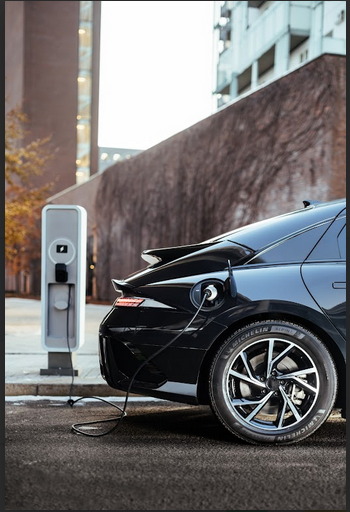By: Russell Shepherd, Technical Communications Manager, Michelin North America Inc.
It’s no secret that electric vehicle (EV) sales have been steadily increasing in Canada, with every major manufacturer expanding their lineup and R&D efforts. According to analysis from Transport Canada, EVs and plug-in hybrids made up around 13 per cent of all light-duty vehicle sales in July 2024, up from 11 per cent the previous year, showing continued momentum in adoption across the country. Additionally, a large majority of EV drivers have reported that they would choose an EV again for their next vehicle purchase, meaning that we can continue to expect more EVs on the road in the coming years.
Despite the increase in Canadians getting behind the wheel of an EV, range anxiety and the lack of access to charging stations remains one of the most persistent concerns among potential buyers.
While battery innovation will advance in the coming years, the parts installed on an EV can significantly impact its range right now. When it comes to tires, factors like temperature, wear and tear, and load capacity all influence the distance an EV can travel on a single charge.
A Michelin survey of more than 1,500 Canadians revealed that most current EV owners and potential buyers don’t fully recognize the role tires play in battery life and efficiency. Like any technological shift, education is critical, which is why it’s important to understand how tires contribute to the overall performance of your EV.
Below are some of the key knowledge gaps the survey revealed, and how you can alleviate range anxiety with something as simple as the tires you put on your car.
More weight means less distance
EVs are heavier than gas-powered vehicles due to the size and weight of their batteries. More weight on tires means more rolling resistance and energy consumption which directly affects range.
Yet 76 per cent of Canadians surveyed were unaware that tire quality can influence EV performance. To support this extra weight, EVs need larger tires or models with increased load-bearing capacity. By equipping your EV with tires designed specifically to handle this added weight, you can improve efficiency and extend your range.
High torque results in significant rolling resistance
The survey also found that 83 per cent of Canadians didn’t connect battery life with tire age, while 68 per cent didn’t realize that rolling resistance plays a role in efficiency.
Since EVs deliver instant torque, their tires experience higher stress, making rolling resistance and tire durability even more important for maintaining range. Interestingly, worn tires can provide nearly six per cent more range compared to brand-new ones, further highlighting the value of long-lasting, high-quality tires.
By choosing one of the many high-performance tires that Michelin has engineered for EVs, drivers can maintain lower rolling resistance for longer, improving range without compromising safety or tread life.
Cold weather has a greater effect on EVs
Canadian winters pose another major challenge. Cold temperatures can reduce battery performance by up to 30 per cent, and while most drivers are aware of that impact, 81 per cent don’t realize how winter tires can help.
The best winter tires are designed with specialized compounds and tread patterns that maintain grip and keep rolling resistance low even in cold, wet, or icy conditions. For EV drivers, that means not only safer handling but also more efficient energy use, ultimately resulting in longer range on every charge. For drivers looking to get the most from their EV year-round, choosing tires built specifically for electric performance can make a measurable difference in both safety and efficiency. If you’re looking for the right tire for your EV, you can visit michelin.ca.
As more consumers consider purchasing EVs, range anxiety will continue to top their concerns. But it’s important to understand how something as simple as the right set of tires can alleviate those concerns, enhance performance, and help make the switch to electric a confident one.
*This Article Is Sponsored By: Michelin








